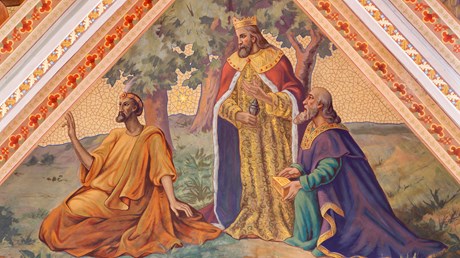Q&A with religious studies scholar Eric Vanden Eykel on the history, mystery, memes, and meaning of the wise men in the Book of Matthew.

How many Magi visit Jesus in the Bible? Where do they come from?
The answers, for many, are as easy to recall as the first line of the beloved Christmas hymn: “We three kings of Orient are.” And yet, in the Gospel of Matthew, there are not three of them. Nor is a region specified beyond the very general “east.” Also, they’re not kings.
The wise men have become essential to the iconography of Christmas, but as religious studies scholar Eric Vanden Eykel argues in his new book The Magi, the difference between the accepted imagery and the text of the gospel is instructive. We can learn something about biblical interpretation by looking at all the ways people have read the Magi’s story. CT spoke to Vanden Eykel about the biblical account of Matthew 2:1–12, the many interpretations and creative retellings, and the gifts the Magi can give an attentive reader today.
How would the Christmas story be different if we didn’t have Magi? What would we lose if they weren’t in the Gospel of Matthew?
They’re there as witnesses—the Magi provide that in Matthew, and the shepherds provide that in Luke.
In Matthew, without the Magi, Joseph and Mary are just at home.
When the Magi come into the story, they validate that the birth has taken place and that a specific type of person has been born. This is not just a baby. The Magi’s interest is in the king of Judeans, so Matthew has them recognizing that not only has this person Jesus been born, but he’s been recognized as a king.
My reading is that this is very political.
How is the biblical account of the Magi political?
Contemporary readers, we have been conditioned to read this as a story about people seeking God, but I just ...
from Christianity Today Magazine
Umn ministry


.gif)

.gif)
.gif)
